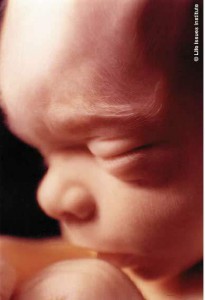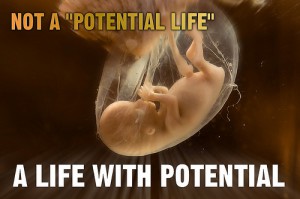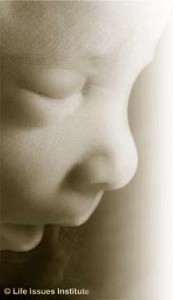 Two recent articles, initiated by the discussion of late-term abortion during the Presidential campaign, talked about preborn children who passed away too early. These stories brought up some poignant memories for my wife and me.
Two recent articles, initiated by the discussion of late-term abortion during the Presidential campaign, talked about preborn children who passed away too early. These stories brought up some poignant memories for my wife and me.
The first article, on the pro-abortion website dailykos.com, was written by a woman whose baby’s heart stopped beating during her pregnancy—a painful experience for a mother look forward to the birth of her child. Unfortunately, the author somehow thinks her experience justifies legalizing abortion on demand, using the tired line that politicians should leave the doctoring to doctors.
Let me say, I feel nothing but grief for the author. As some may remember from a previous post, my wife and I lost a child at 12 week’s gestation. We had the experience the author describes of going in for a regular checkup and the doctor not finding a heartbeat. I remember pacing outside the ultrasound room (they wouldn’t let me in because it was an “emergency ultrasound”). I remember crying into the phone telling my boss why I wouldn’t be in and breaking the horrible news to my father.
While our experience was similar to that of the author, our response has been different. Rather than use our heartbreak to justify the legalization of abortion for any reason, as the author did, our grief is a constant reminder of the life that was.
Our response is more like the author of the second article I read, posted on thefederalist.com titled “In Defending Abortion, Hillary Clinton Denies the Life of My Miscarried Child”. In that article, the author talks about her child “Ethan” who she also lost around 12 week’s gestation. In the article the author says she just wants to ask Hillary Clinton one question about Clinton’s radical support of late-term abortion: “At what point did your daughter’s life start to matter?”
There is no explanation for why the same horrific experience affects people so differently. Why does one person consider a life a “clump of cells” while others call that same person what it is—a miracle of life? What I do know is that what my wife and these two women experienced is no justification for abortion on demand. There is no way to explain, or even to know, why these three lives ended, but there is no comparison between their experience and the act of an abortionist knowingly and willingly ending the life of a woman’s child.
I would not wish our experience on our worst enemy…and I imagine the authors of these two articles feel the same way. I can only hope that the authors find the peace they need, and that the dailykos.com article author eventually realizes that her grief is confirmation that her lost child was a human being and deserves to be cherished, as do all lives.



